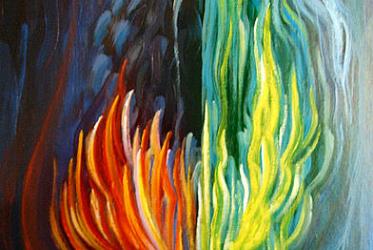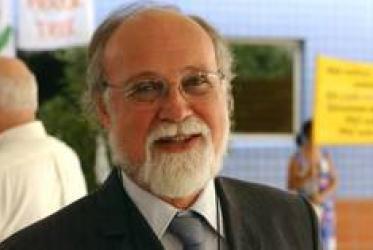Churches working for peace in Indonesia - a country which over the last decades had to cope with repeated outbreaks of ethnic and religious conflicts, the integration of internally displaced people as well as refugees from outside its borders - will receive a solidarity visit of an international ecumenical delegation sent by the World Council of Churches (WCC) from 17 to 24 July. The delegation members (see list below) will learn about peace-building projects by Indonesian Christians and share experiences made in their own churches in Australia, USA, Germany, Korea and Sudan. After a general introduction in the Indonesian capital Jakarta, the delegation will split into two groups in order to visit different regions. While Indonesia, home to the world's largest Muslim population, has a tradition of tolerance, the regions of Central Sulawesi and the Moluccas have been the scene of Muslim-Christian fighting after 1998. Meetings on 18-20 July in Poso (Central Sulawesi) and Ambon (Moluccas) , including an encounter with Muslim leaders, will be an opportunity to learn about initiatives to tackle radicalism. From Sulawesi, the first group will travel on to Kupang in the western part of the Timor island, capital of the Indonesian province of East Nusa Tenggara. The province has seen a considerable influx of refugees and deportees following the independence referendum in East Timor in 1999. Meanwhile, the second group will pay a visit to West Papua , where tensions between the traditional Christian majority and Muslim migrants arriving from other Indonesian islands have led to "the emergence of new, exclusivist groups in both religious communities", according to a recent report by the International Crisis Group. Over the past years the WCC has also repeatedly expressed its concern over human rights violations against the indigenous people of Papua . On 24 July, both groups will be back in Jakarta for an evaluation session with the executive board of the Communion of Churches in Indonesia (PGI), who hosts the visit. The ecumenical delegation is sent to Indonesia as "living letters" to express the solidarity of the WCC fellowship, which comprises 349 churches worldwide. Until 2010, several Living Letters visits take place each year throughout the world in the context of the WCC's Decade to Overcome Violence in order to prepare for the International Ecumenical Peace Convocation in 2011. Indonesia, the world's 4th most populous nation, is also the country with the biggest number of WCC member churches, 27 in total. Group visiting Poso and Kupang:
16 July 2008








